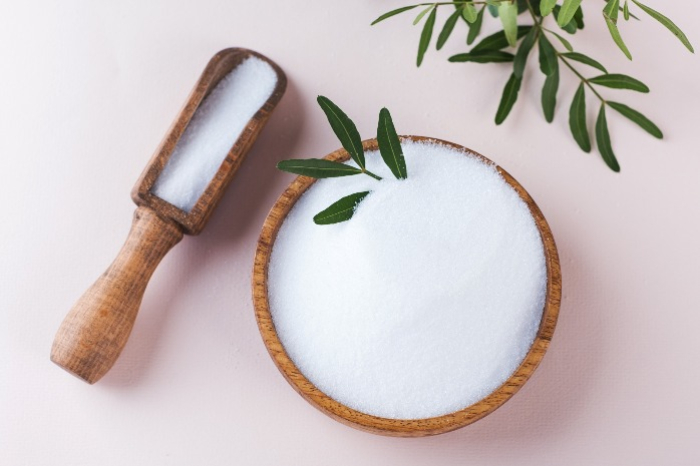Food & Beverage
Korea's Daesang begins production of sugar alternative allulose
The food company operates the country's largest allulose plant; it seeks to export the low-calorie sweetener
By Jul 25, 2023 (Gmt+09:00)
1
Min read
Most Read
Hankook Tire buys $1 bn Hanon Systems stake from Hahn & Co.


NPS to hike risky asset purchases under simplified allocation system


UAE to invest up to $1 bn in S.Korean ventures


Osstem to buy BrazilŌĆÖs No. 3 dental implant maker Implacil


US multifamily market challenges create investment opportunities



South Korean food maker Daesang Corp. has started operations of the countryŌĆÖs largest facility for the production of allulose, a low-calorie sweetener, as more consumers question the safety of aspartame and are looking to other sugar substitutes.
Daesang, the manufacturer of globally renowned kimchi products under its Jongga brand, began manufacturing allulose at its plant in Gunsan, North Jeolla Province, on Monday. The company invested 30 billion won ($23.4 million) to establish the facility.
Demand for low-calorie sweeteners has increased as more people seek healthy food in the post-pandemic era, a Daesang official said. The company will target the local market first and then seek to export it, the official added.
Allulose contains about 10% the calories of the same amount of table sugar and is about 70% as sweet. It naturally occurs in very small quantities in food such as figs and raisins.
The sweetener is garnering attention as the World Health Organization (WHO) said earlier this month that aspartame is possibly carcinogenic to humans.
Samyang Corp. is DaesangŌĆÖs local rival in allulose production. It posted 10 billion won in revenue for allulose last year, soaring 120% on-year.
Samyang started manufacturing of the sweetener in liquid form in 2016 and built a dedicated plant in Ulsan, South Gyeongsang Province, in 2019. It plans to establish a new factory for allulose in the same region by the first half of the next year.
Food giant CJ CheilJedang Corp. also started mass production of allulose in 2015 but has suspended manufacturing as part of its business streamlining efforts.
ŌĆ£Each sweetener has different characteristics, so it is not possible to replace all products containing aspartame with natural sweeteners,ŌĆØ said a food industry source. ŌĆ£But demand for natural sweeteners will continue to increase due to consumersŌĆÖ concerns over the safety of aspartame.ŌĆØ
Write to Ji-yoon Yang at yang@hankyung.com
Jihyun Kim edited this article.
More to Read
-
 Food & BeverageS.Korea's Daesang acquires US food company Lucky Foods
Food & BeverageS.Korea's Daesang acquires US food company Lucky FoodsJun 19, 2023 (Gmt+09:00)
1 Min read -
 Korean foodUS set to emerge as top global buyer of Korean kimchi: Daesang
Korean foodUS set to emerge as top global buyer of Korean kimchi: DaesangMar 28, 2023 (Gmt+09:00)
2 Min read -
 Korean foodKorea's kimchi maker Daesang to build factory in Europe
Korean foodKorea's kimchi maker Daesang to build factory in EuropeNov 08, 2022 (Gmt+09:00)
1 Min read -
 HealthcareDaesang Life, ChinaŌĆÖs Sinopharm to launch health foods joint venture
HealthcareDaesang Life, ChinaŌĆÖs Sinopharm to launch health foods joint ventureJul 27, 2022 (Gmt+09:00)
1 Min read
Comment 0
LOG IN


